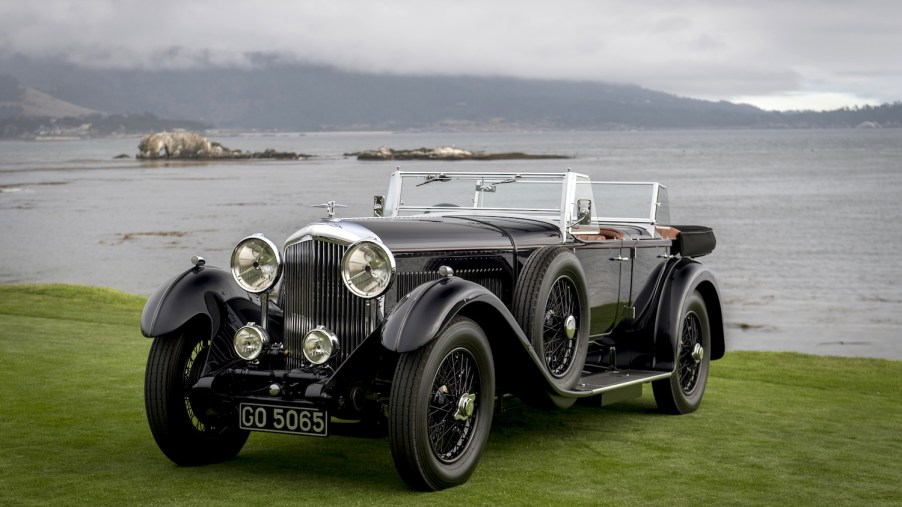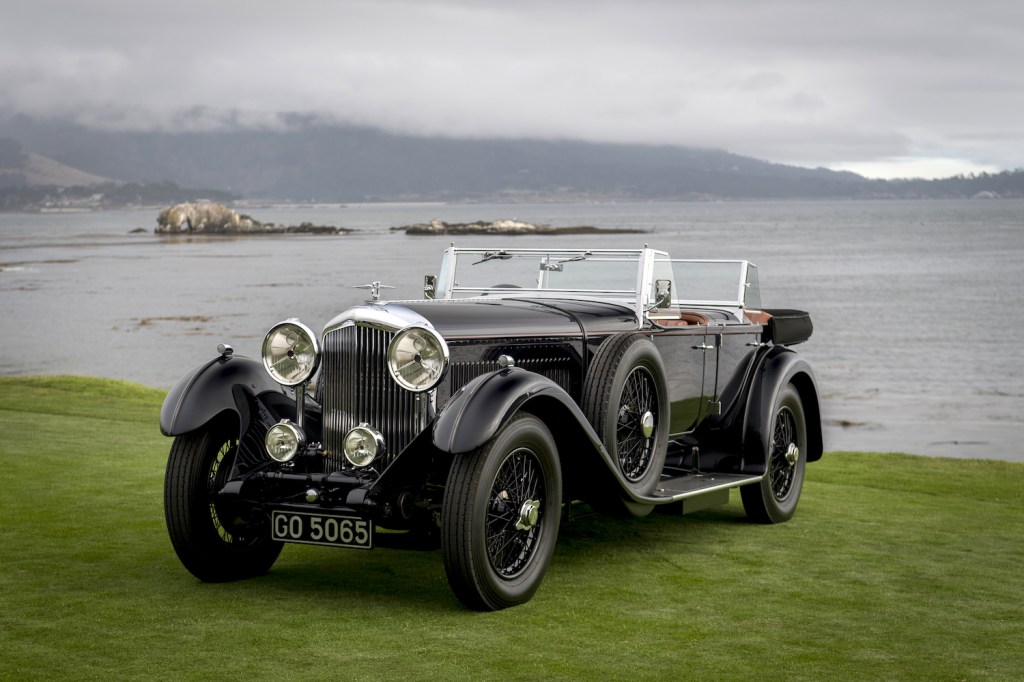
Buying a Classic Car? Ask the Seller These Important Questions
Buying a classic car can make for an exhilarating experience. In fact, according to State Farm, buying a classic car can be one of the most exciting car purchases you’ll ever make. While that’s certainly true for many, there are a few questions that you should be asking the seller before finalizing your purchase. After all, you don’t want to wind up with a classic car that’s a total dud.
Does the classic car have a clear title?
There are several different types of car titles but, according to State Farm, if you’re in the middle of buying a classic car, the seller should be able to provide you with a clear title. If you’re unfamiliar with the term, a clear title means that the car owner owns the vehicle outright and without any levies or liens, Bankrate reports.
As for why having a clear title is important when buying a classic car? State Farm reports that without a clear title, you could wind up paying a good amount in fees to research the car’s ownership history. Applying for a new title could end up costing you too.
Don’t buy a classic car without seeing the vehicle history report

If you plan on buying a classic car, you should also ask the seller for a vehicle history report. According to CarFax, if the classic car is a 1981-or-later model, you can use the vehicle’s 17-digit VIN to run a Carfax Vehicle History Report. “The report will give you a basic guideline of owners, accidents, insurance reports, repairs, and more,” CarFax added.
Maintenance records are vital, too, if you plan on buying a classic car. A car’s maintenance records will give you a good understanding of how well the car has been taken care of over the years. Maintenance records will also provide you with insight into any mechanical problems the car may have experienced, along with any major repairs that were made to the vehicle.
“If a picture is worth a thousand words, a good-size folder full of maintenance records is worth a million conversations. Not only will they provide a better understanding of the parts of the car you can see, but the information will also offer solid clues to the mechanical parts that you can’t.”
CarFax
Ask to have the classic car inspected by a mechanic
When it comes to buying a classic car, American Collectors Insurance recommends taking the vehicle to an experienced mechanic for a thorough mechanical inspection too. While not all classic car sellers will be game for it, and doing so might seem tedious, having the car inspected could save you both time and money in the long run. Fortunately, plenty of mechanics and companies provide classic car inspections.
Take, for example, the AAG Auto Appraisal Group. AAG utilizes a network of certified professional agents to provide classic car shoppers with pre-purchase inspections. AAG isn’t the only company that does classic car inspections, either. American Collectors Insurance also highlighted classic car inspection companies such as FossilCars and the Classic Car Network.
Don’t skip the test drive when buying a classic car

Last but certainly not least is the test drive. If you plan on buying a classic car, ask the seller if you can take it out for a test drive. And if you’ve got some extra time on your hands? CarFax recommends asking the seller to take it out for an extended test drive so that you can get an even better understanding of how the car runs and handles.
But don’t just take the wheel and set off on the road ahead. Try a cold start and, once the car has been running for a few minutes, listen to the engine for any signs of irregularities. Then, once you’re on the road, test the vehicle’s brakes. Once you’ve confirmed that the car’s brakes do work, CarFax suggests asking yourself the following questions: How does the car accelerate? Does its transmission shift smoothly? Do you notice any odd suspension noises? Next, simply take your time test driving the car.
Is buying a classic car worth it?
As exciting as buying a classic car may be, it’s going to take some effort on your part. Not only should you do a hefty amount of research before buying a classic car, but you should also make sure to ask the seller these important questions before finalizing your purchase. As for if buying a classic car is worth it? If you’ve always dreamed of buying a classic car and don’t mind putting in the extra effort, then buying one may very well be worth it for you.



